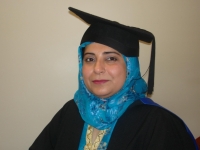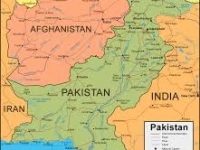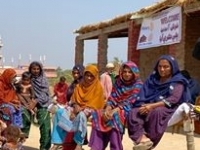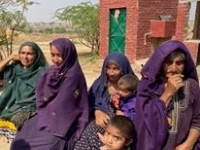News
ON THE WAY TO GLOBAL GENDER EQUALITY
WOMEN AND THE LAW
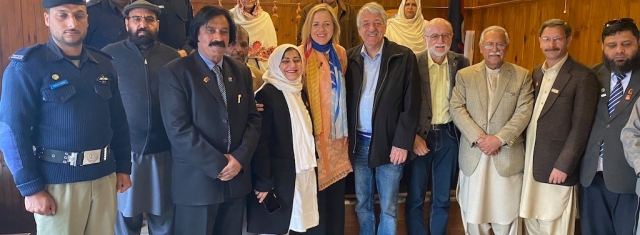
The United Nations ranked achieving gender equality and empowerment of all women as part of its top five sustainable development goals for the year 2020. Equality is not only a fundamental human right, but a necessary foundation for a peaceful, prosperous and sustainable world. As reflected by the United Nations´ landmark resolution 1325, the organization is urging member states to increase the participation of women in legislation, incorporate gender perspectives in all peace and security efforts, take special measures to protect women from gender-based violence, particularly rape and sexual abuse. (U.N.org, 2020)
While significant progress on the road to gender equality has been made over the last decades, as fewer girls are being forced into early marriages, more women serving in parliament and leadership positions, laws being reformed to advance gender equality, many challenges still lay ahead. Inequitable laws and social medians remain pervasive as women continue to be underrepresented at all levels of political and corporate leadership and 1 in 5 women between the ages 15 -49 years report experiencing physical or sexual violence by an intimate partner.
Patriarchal values and skewed social norms keep gender inequalities alive as discrimination against women remains a worldwide phenomenon especially prevalent in African and Asian countries. In Pakistan for example, women´s rights are deferred in the name of traditional practices explaining why women are not deserving of receiving equal educational opportunities and employment promotions. According to UNICEF 2016, the literacy rate among females was reported at 49.6% to 51.8% as compared to 71.6% to 72.5% for males; 1.91 million women were entered into forced marriages in Pakistan, 21% of women were below 18 years of age while 3% were married before reaching their 15th birthday. In the Province of Punjab alone 700 women were murdered in the name of honor between 2016 in 2019 In general women continue to have comparatively lowered life expectancies due to depression, inappropriate standard of life and because they are not being provided with suitable healthy environment and food.
While the constitution of Pakistan grants equal rights to everyone without any discrimination of age, sect, religion, caste, creed or sex, (52% of the Pakistani population is comprised of women) females are not yet enjoying equal facilities of education, employment and participation in social activities. Furthermore, including women in legal systems, decision making processes and dispute settlements seems to still be an exception, especially in the country´s remote provinces.
Not only are women in Pakistan largely excluded from participating in legal procedures, but they also face great difficulties in gaining access to legal systems all together. Court systems tend to be expensive, allowing for long drawn out trials periods, leaving women unprotected and fearing violent retaliation from male relatives. Consequently, women have to rely on informal dispute settlement councils called “Jirgas“ which are old, traditional organizations run by males only. These exclusive, male dominated institutions are empowered and tasked with setting behavioral standards and arbitrarily deciding the rule of law impacting women´s lives and wellbeing.
In an attempt to recognize alternative forms of dispute resolution through semi-formal decision making bodies, the Pakistani government began implementing in 2001 local law enforcement committees called Community Policing Committees, bodies which are also known as Dispute Resolution Councils. While numerous successes of such Dispute Resolution Councils were reported especially in the city of Abbottabad, capital of the Abbottabad District in the Hazara region of Eastern Khyber Pakhtunkhwa, their permanent introduction as modern successors of the traditional, male ruled legal systems (Jirgas), remained a challenge. Accomplishments in 2014 included 5000 resolved dispute settlements, averted retaliation measures in 27 murder cases and financial settlements in the amount of 1.6 million Euros (1.9 million USD).
Combatting such discriminatory practices which are deeply entrenched in existing social norms, requires a focus on activities which instigate behavioral changes at all community levels. Determined to improve gender equality and update the Pakistani legal system, Rotary Peace Fellow Humaira Shafi, Ph.D., a former Rotary Fellowship holder, dedicated her career and research to achieving legal representation of Pakistani women as part of Dispute Resolution Councils. Included in her plan is the legal education, mediation training and certification of women with the goal of joining the ranks of Dispute Resolution Councils in Abbottabad. The training is anticipated to unlock a chain reaction, empowering and encouraging women to continuously apply for positions on Dispute Resolution Councils, thus ensuring the emergence of sustainable gender representation, lowering the inhibition threshold for women, promoting and mutual respect between the sexes.
An unexpected friendship and sturdy international cooperation begun after Ms. Shafi presented her work June 2019 at the Rotary Convention in Hamburg, Germany. Her plan found a strong echo when she met Anke Schewe, LL.M., a German Rotary District Governor 20/21 who attended her lecture. Impressed by Ms. Shafi´s passion and commitment for the cause, Ms. Schewe planned a two week exploratory follow up visit to Pakistan along with Mr. Klaus Klennert, Chair Rotary Country Committee Germany-Pakistan and Mr. Gerhard Betz Ph.D., RC Essen-Gruga. After meeting with representatives of the Pakistani Supreme Court, several Pakistani Rotary Clubs, peace activist Tahira Abdullah, the Friedrich Ebert Foundation and representatives of the German government, the Rotary delegation determined that Ms. Shafi´s would be funded as part of Rotary International´s focus in the area of “Peace and Conflict Prevention“. “This is a remarkable accomplishment as only five percent of global grant projects initiated from Germany are being approved by Rotary International. Ms. Schewe hopes that “this project will even develop into a model project“ . (2020)
Strengthening the need for gender equality and protection of women´s rights, the European Union and the United Nations have embarked on a new, global, multi-year initiative focused on eliminating all forms of eliminating violence against women and girls. Funding will be provided by the EU as main contributor, an initial investment by the UN in the order of EUR 500 million ( 592 million USD) is planned. Other donors and partners will be invited to join the initiative and broaden its reach and scope. The modality for the delivery will be a UN multi- stakeholder trust fund, administered by the Multi-Partner Trust Fund Office, with the support of core agencies UNDP, UNFPA and UN Women, and overseen by the Executive Office of the UN Secretary-General.
This pioneering body of work by Rotarians Shafi, Schewe and their teams is deemed important and crucial by the author of this article, One World Rotarian Dr. Ina von Ber, as it underscores efficiency gains from removing gender gaps and promoting gender equality in decision-making positions. Including women in Dispute Resolution Councils, would not only represent a dramatic change to the status quo dominated by male representatives but this change would produce a better selection process, yielding positive effects on the quality of representatives. Second, women contribute to balanced outcomes, improved performance of institutions and organizations and improved economic solutions. Third, women in decision-making positions may contribute to the definition of a new agenda, including items which are typically neglected or misunderstood by men. For decision making bodies this can include a shift towards less risky decisions, or towards sustainability and human rights policies with longer time horizons. For policy-makers this can mean more investment in education and social needs.
Anam. S., Ghania. K., Constitutional Safeguard and Plight of Women in Pakistan. Pakistan Journal of Multidisciplinary Research (PJMR) Vol. 1, Issue 1, June 2020
https://www.un.org/en/spotlight-initiative/
Mahmood, B. The Diplomat 4/1/2018 https://thediplomat.com/2018/01/pakistans-jirgas-and-womens-rights/
Schewe, A., Personal Communication (2020)
Shafi, H., Personal Communication (2020)
UN.org https://www.un.org/esa/earthsummit/pakis-cp.htm
UN.org https://www.un.org/womenwatch/osagi/wps/
.

